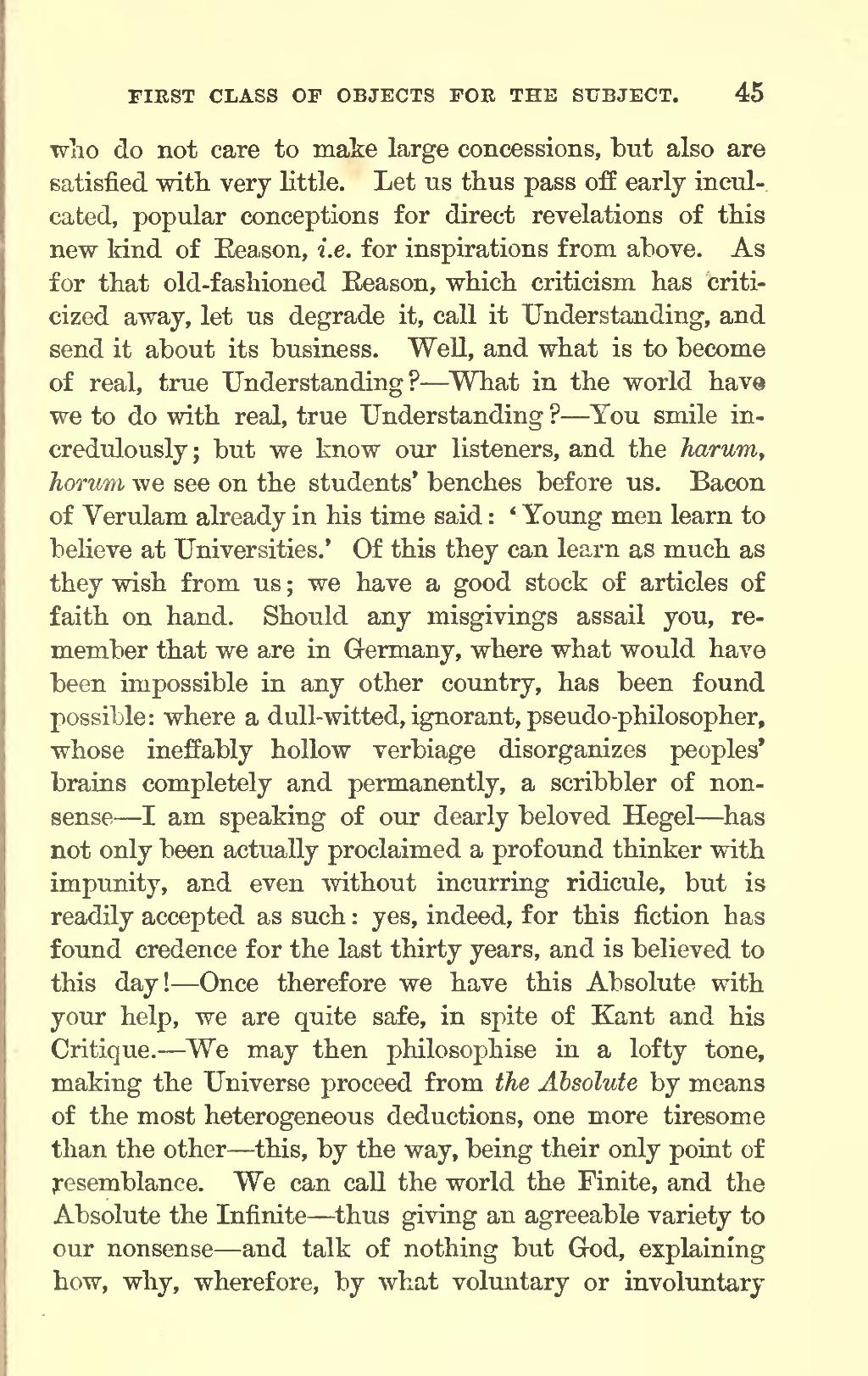who do not care to make large concessions, but also are satisfied with very little. Let us thus pass off early inculcated, popular conceptions for direct revelations of this new kind of Reason, i.e. for inspirations from above. As for that old-fashioned Reason, which criticism has criticized away, let us degrade it, call it Understanding, and send it about its business. Well, and what is to become of real, true Understanding? — What in the world have we to do with real, true Understanding? — You smile incredulously; but we know our listeners, and the harum, horum we see on the students benches before us. Bacon of Verulam already in his time said: 'Young men learn to believe at Universities.' Of this they can learn as much as they wish from us; we have a good stock of articles of faith on hand. Should any misgivings assail you, remember that we are in Germany, where what would have been impossible in any other country, has been found possible: where a dull-witted, ignorant, pseudo-philosopher, whose ineffably hollow verbiage disorganizes peoples brains completely and permanently, a scribbler of nonsense — I am speaking of our dearly beloved Hegel — has not only been actually proclaimed a profound thinker with impunity, and even without incurring ridicule, but is readily accepted as such: yes, indeed, for this fiction has found credence for the last thirty years, and is believed to this day! — Once therefore we have this Absolute with your help, we are quite safe, in spite of Kant and his Critique. — We may then philosophise in a lofty tone, making the Universe proceed from the Absolute by means of the most heterogeneous deductions, one more tiresome than the other — this, by the way, being their only point of resemblance. We can call the world the Finite, and the Absolute the Infinite — thus giving an agreeable variety to our nonsense and talk of nothing but God, explaining how, why, wherefore, by what voluntary or involuntary
